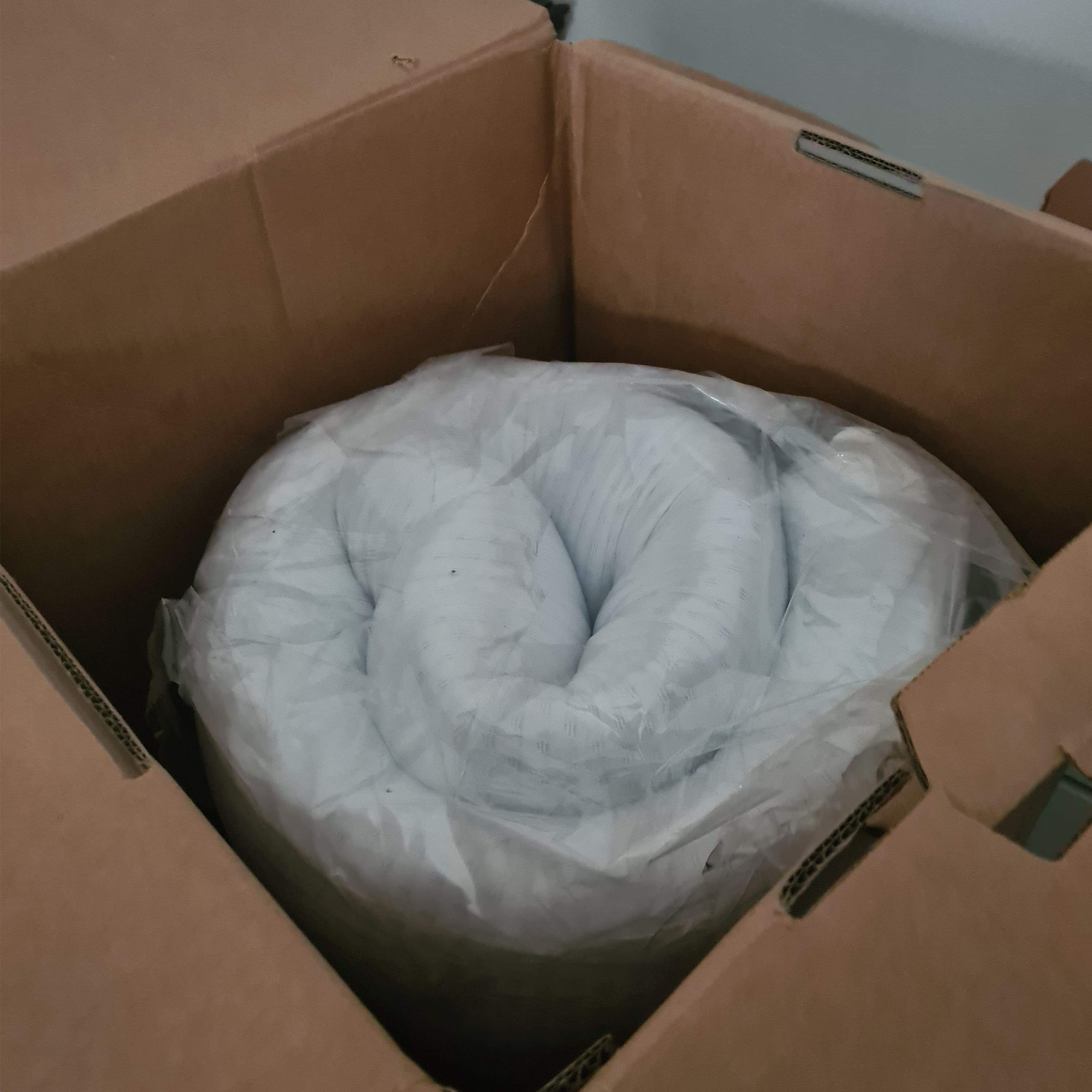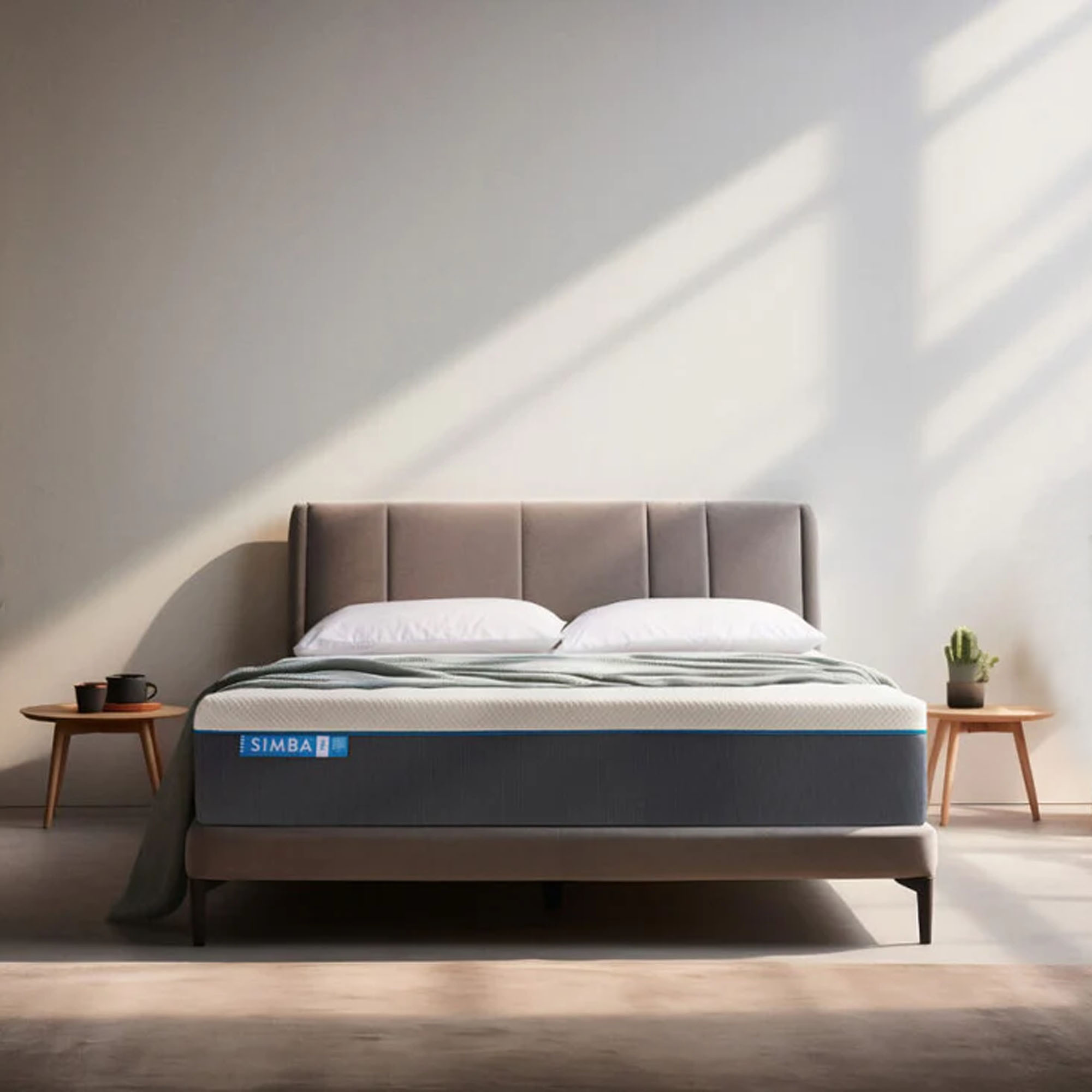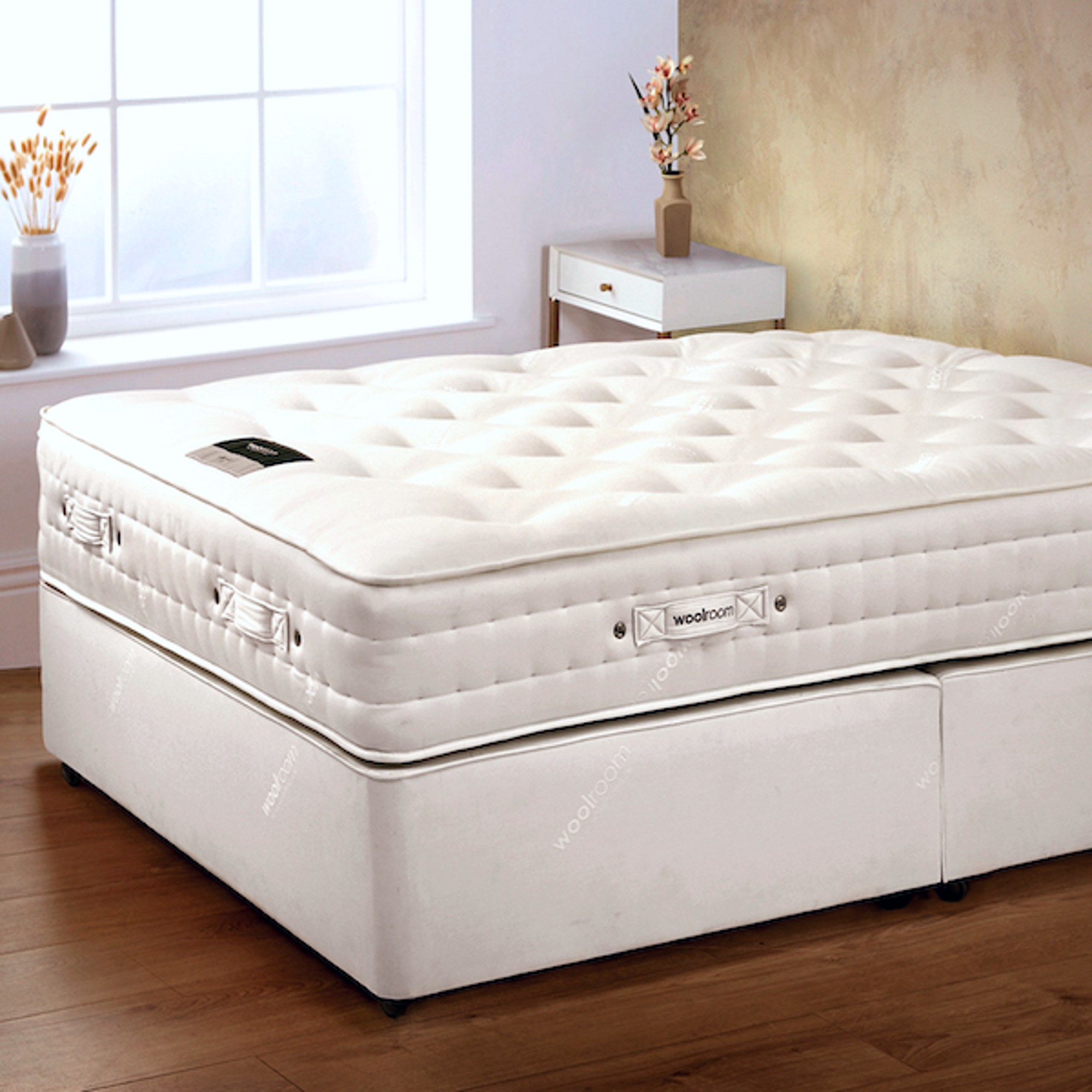
Struggling to decide what mattress to buy? You might be pondering whether a mattress in a box is as good as a traditional mattress. Buying a new mattress is an investment, so it’s wise to think things through.
Having tested plenty of both 'mattresses in a box' and standard mattresses as a product reviewer to find the best mattress, I can attest that both types of mattresses can be fantastic. But there are definite differences between them, and some factors to ponder.
Mattresses in boxes tend to have better availability for example. But most of these mattresses contain memory foam, which is 'a bit Marmite' in the world of mattresses. Some people love that sinking feeling, others hate it.
Standard mattresses sometimes have a longer lead time, so don’t expect to be able to order and have your mattress within a week. But you have a wider range of types of mattresses to choose from.
Mattress in a box vs traditional mattress - quality
There is no hard and fast answer on quality. Although perhaps purists would think mattresses in boxes are not as good quality, that’s definitely not the case in 2024.
Mattresses in boxes can be great quality and durable, just as some standard mattresses can be less than brilliant. You really need to dig beyond the mode your mattress comes in, and look into materials used in your mattress, spring counts and the quality of the construction.

Mattresses in boxes are a bit of a one-size-fits-all product because they’re mass-produced. This suits lots of people. 'Most of the popular mattress-in-a-box brands offer a reasonable quality, mid-priced product that is a perfectly acceptable option for many people,' says Simon Williams, Head of Marketing & Membership at the National Bed Federation.
'However, if you want a more bespoke, hand-crafted, higher quality mattress then you should opt for one that isn’t rolled up,' Williams continues. If your budget stretches to all this, you may want to look at a traditional mattress.
Mattress in a box vs traditional mattress - comfort and support
You might be wondering which is more comfortable and supportive – boxed mattresses or traditional mattresses? 'This is not an easy one to answer,' says Simon Williams of the National Bed Federation.
'Comfort is so subjective. What one person finds comfortable, another person would say was uncomfortable,' says Williams. Indeed, mattress testing shows that testers and their co-sleepers have wildly different preferences. We’ll drill down into that in a moment.
You can only really test if a mattress is comfortable for you by sleeping on it for a good few nights. As luck would have it, many mattresses in boxes come with a free trial period. This allows you to sleep on a mattress for weeks, months and sometimes up to a year, to see if it suits you. And if you don’t like your mattresses, you can send it back for a refund. While some traditional mattress brands also offer this service, it’s not quite as common as it is with mattress-in-box brands.

'Comfort and support are based on a combination of your weight and the way you sleep along with your personal preferences,' explains Laura Tudor, Bedroom Furniture, Filled Bedding and Mattress buyer at John Lewis & Partners. 'Both a mattress in a box and a standard mattress are able to offer adequate comfort and support. We would always therefore recommend you try a mattress in stores to ensure you get the best mattress for you,' she says.
Mattresses in boxes tend to either be foam-only mattresses, or memory foam and springs. These combination mattresses are called hybrid mattresses. These mattresses all have layers of different types to build a cohesive support network for your body.
The Simba Luxe hybrid mattress – Simba’s most premium mattress – for example has 11 layers in the filling. This includes bouncy foam for a good bounce back, and springs for support. During testing, these hybrid mattresses in boxes perform very well on the comfort stakes.
You might be wondering why there are different types and price points on these mattresses. We spoke to Simba to find out why. 'The quality is consistently high across ranges, with differences mainly in the number of layers and springs,' says Mary Love, Product and Sourcing Director at Simba.
Historically, memory foam has been hot to sleep on as some older foams radiate your body heat right back at you. However, memory-foam technology has come on leaps and bounds over the last 10 or twenty years, and most memory-foam and hybrid mattresses have been developed to be breathable and not cook you while you sleep.

Traditional mattresses can vary in support massively. For some, you can even select your preferred tension when you buy. In fact, with standard mattresses, you can go bespoke and get something perfect for you – if you have the budget.
These pricier standard mattresses tend to be pocket-sprung mattresses. And they’re often filled with natural fibres (silk, wool, cotton, cashmere for example) that are naturally good at temperature regulating and are hypoallergenic.
At the other end of the scale, traditional open-coil mattresses come in at a low price point. They can offer a good amount of support and comfort, as the springs provide a decent degree of responsive support.
Mattress in a box vs traditional mattress - speed of shipping
Mattresses in boxes are never made bespoke, so can be shipped very quickly. Simba, for example, does free next-day delivery. Emma, another big mattress-in-box brand, tends to take a few days. Nectar offers a 48-hour delivery service on most postcodes.
Traditional mattress delivery times can vary. If you’re buying 'off the shelf' you might be able to go for next-day delivery too. John Lewis & Partners, for example, has a section of its website for next-day delivery mattresses, and there are traditional mattresses to choose from there.

Looking at another brand, Silentnight makes its mattresses to order and its aim is to deliver between 1-2 weeks. Woolroom, a premium mattress brand, say if its mattresses aren’t in stock then it’s around a 5-6 week delivery time.
So although mattress-in-boxes often win on delivery convenience, traditional mattresses can arrive in your bedroom pretty quickly too. But it rather depends on what you’re ordering. Bespoke mattresses are going to take longer to arrive, for obvious reasons. If you need a new mattress in a hurry, always look at retailers’ delivery times – contact their customer services if it’s unclear.
Mattress in a box vs traditional mattress - getting it home
Pretty much all mattresses are delivered these days. That saves you strapping your brand new mattress to the roof rack.
Some brands offer the mattress delivered to the room of your choice as standard, some make you pay extra for this service, and some don’t offer it at all.
From experience, if you can get a mattress delivered to your room of choice then do it. Mattresses – whether they’re in a box or traditional – are heavy and cumbersome. Getting them up flights of stairs is no joke. Let someone else do the heavy lifting for you on this one.

Verdict
Overall, I think it's safe to say that yes a mattress in a box can be as good as a standard mattress. In all the categories we've explored they're more than measured up to each other. In fact our top three rated mattresses in our best mattress guide all arrived in a box. The Simba Hybrid Original Mattress review even gave this mattress-in-a-box a five-star rating, the highest in our guide describing it as the 'Goldilocks' of the mattress world.
Unless you are looking for something bespoke the only significant difference between the two mattress types is your own comfort preferences.
This mattress is proof of the quality of a mattress-in-a-box. It is a crowd-pleaser that got our vote for the best mattress available at the moment.
If you're looking for a budget buy this mattress-in-a-box won't disappoint. Our reviewers found it super comfortable and awarded it four out of five stars.
This hybrid mattress arrives in a box, but offers some level of personalisation as you can choose between three firmness levels.
FAQs
What is the lifespan of a mattress in a box?
It really depends on a few factors, how long your mattress will last. That includes how often it’s used. But rest assured, many mattresses come with hefty guarantees. For example, Simba offers a 10-year guarantee and John Lewis & Partners offer 7-10 years depending on which mattress you go for. There are signs that you need to replace your mattress, but generally every 7-10 years is optimal.
Always make sure you’re aware of any small print in your guarantees. 'Rotating your mattress regularly is one of the very few conditions of our 10-year guarantee,' says Mary Love, Product & Sourcing Director at Simba.
'Take it for a 180-degree spin on the base once a month for the first 3 months, then every 3-6 months for the rest of its life.'







